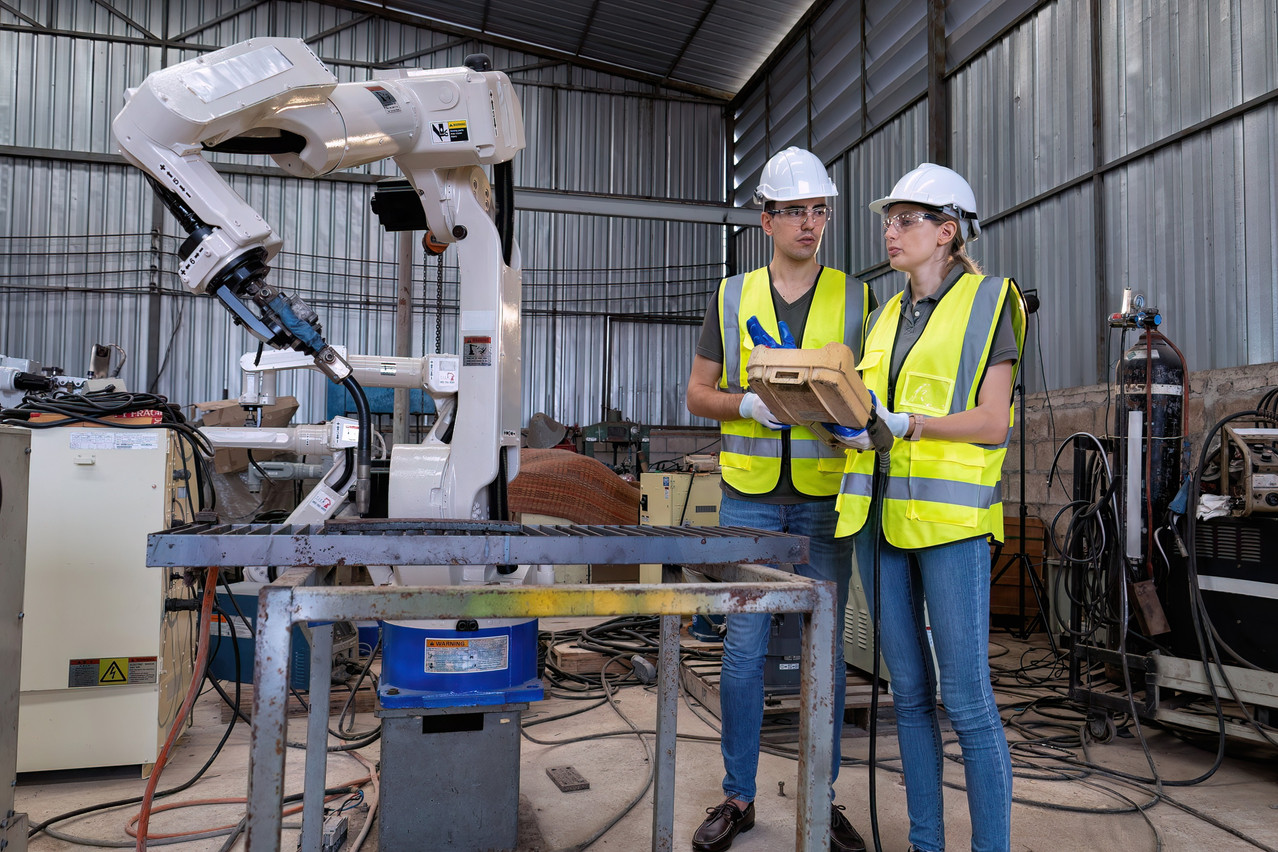Based on the a report entitled “The Economic Opportunity of AI in Luxembourg,” which analyses the potential impacts of artificial intelligence in Luxembourg, the labour minister (CSV) said in a parliamentary reply that AI could replace 6% of jobs in Luxembourg (versus an EU average of 7%). According to the minister, “the overall impact of AI on the Luxembourg labour market is therefore rather perceived as positive, particularly in the finance, accounting, legal and IT sectors.”
AI could thus strengthen 72% of jobs compared to 61% on average in the EU. Some 22% of jobs will simply not be affected (compared with 32% in the EU). The parliamentary document also states that 6% of jobs are considered to be “at risk.” These are mainly administrative functions for which “preventive measures will have to be put in place to help the workers concerned strengthen their skills and remain complementary to AI,” insisted the centre-right minister.
This is the whole point of the Skills-Plang (“Skills Plan”) bill presented to MPs at the end of January by the minister. It aims to encourage employees faced with changes linked to AI to upgrade their skills and retrain through the introduction of a forward-looking employment and skills management programme, with priority given to small and medium-sized businesses. It has three main objectives, as described in the dossier linked to the chamber: (1) to keep employees in employment through skills upgrading and internal de-skilling pathways; (2) to enhance the general employability of trained employees and combat unemployment; and (3) to improve the competitiveness and resilience of businesses by anticipating the skills needs of the market.
€2m per year
According to the outline of the current project, the employees concerned are those with at least 12 months’ seniority who need at least 120 hours of retraining. The company must choose an approved consultant or consultancy firm to have its application approved by Adem. The consultant must carry out a forward-looking analysis of the company’s situation and the training plan foreseen, which will then be submitted to Adem, with the aim of drawing up a training plan. According to the financial statement attached to the bill, the budget provides for around €2m per year.
But when it was presented, not everyone was eager. Some MPs referred to “red tape” and “complexity” associated with the project, which was initiated by former labour minister (LSAP) in June 2023. The Chamber of Employees had already issued an opinion on this project, shortly after it was tabled by the socialist minister. It pointed to a “haphazard patchwork of measures that hardly provides any relevant solutions in the long run” and rejected the draft as presented. The Chamber of Commerce, which welcomes the draft in principle and supports its ambition, suggested simplifying the implementation arrangements to ease the burden on businesses.
The project is also a sequel of sorts to the Luxembourg Digital Skills Bridge, a pilot project run in 2018 and 2019 by the labour ministry and Adem to anticipate the repercussions of technological developments.
Still in committee, the current bill was the subject of several amendments by the labour committee on 4 March 2025 and is continuing its legislative journey.
This article in French.
